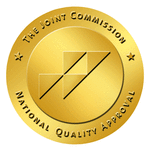My first experience with depression came when I was about nine years old. It was an early Saturday morning, and I was just waking up when I heard a labored breathing coming from my mother’s bedroom. I knew something was wrong, and I yelled for my grandmother to come quickly. That was the day that my mother tried to take her life.
As I grew older, depression seemed to linger in my own life until my early twenties when I found myself sitting on an overpass, wanting to end it all. Life has taught me that depression can be addictive, based on the perception of despair in the mind. Many depressed parents have children who also struggle with depression and anxiety as they get older.
However, the way that each person approaches depression and anxiety can vary. Here, we explore healthy ways that you can cope with depression and addiction. Then, we invite your questions or comments in the section at the end.
Do You Feel Normal In Depression?
When we learn to deal with despair and conflict as children, we adapt to and react to issues as we are shown. Our parents model for us how they cope with life. In this way, we often adapt to their style of handling fear, anger and stress. So, how we deal with life is just as much learned as it is experienced.
I found that the “normal” behavior I was used to was based on the approach my parents took. Depression felt addictive because inside of it, I felt normal. As I grew up, my safety and security came through the unstable environments of those I loved. It took some time to realize the creating a new normal and breaking the curse of depression did not somehow separate me for those I loved. Instead, I had to create a new path to help myself heal.
Dealing With Depression In Your Daily Life: 7 Tips
If you or someone you love is dealing with depression, please know that better things are just around the corner. In fact, there are many sources of help for depression related to addiction. Here are seven tips for dealing with depression in your daily life:
1. Begin with prayer and meditation. Start each day with a quick prayer to thank God for all that you have. There is always a gift we can choose to focus on. Ask what could you learn today not only to help yourself, but to help others. Meditation takes contemplation a step further, during which you ask for guidance throughout the day.
2. Read a devotional. Read written quotes of endurance and overcoming adversity. Seek devotionals that inspire you and look for the examples of God’s principles and promise; ask God to reveal them to you. Depression in addiction recovery does not need to dominate your thoughts.
3. Do something active: Walk, run, clean or get organized. You can pick from a number of activities, but be sure to keep the body moving until it’s time to rest. It raises your overall well-being and gives us security. Activity also provides us with strength in brain function.
4. Journal: Keep a journal of your struggles as well as your new promises. Be honest in your writing; get your thoughts out on paper. Avoid “why me” questions and focus on how can I become stronger, wiser and more helpful to others.
5. Seek wise counsel: Stay in touch with a quality pastor, teacher, mentor, or health professional. You’ll want to find someone with a high level of integrity whom you admire. If they are not trained or have walked through depression themselves, try to find someone who has.
6. Seek a new perspective: Focus on growing yourself and learning new things. Always try to look at the healing process in a new way. Your purpose may one day be to teach others how to overcome depression. Don’t automatically assume your first thoughts on a situation are reliable. Instead, weigh them against scripture, counsel, and the evidence you have.
7. End with prayer: At the end of each day, before you go to bed, tell God everything you want to say and ask Him for His wisdom and direction in your life. I was scared at first to tell Him everything only to find that’s what he wanted all along. With every new tear came a new comfort.
In your Service,
Stephen Scoggins
www.addictionblog.org





 RSS Feed
RSS Feed
